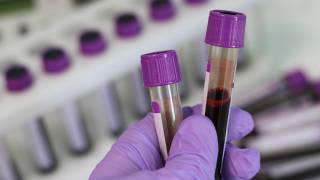San Diego Says ‘Don’t Forget Your 2nd Hep A Vaccination’

Even though the San Diego County Health Department terminated the Hepatitis A virus emergency on January 23, 2018, the County is now saying the outbreak risk is not over.
San Diego Health is reminding anyone who received their first hepatitis A vaccination before mid-September, 2017, they should get a second vaccine dose to complete the series.
While the first vaccine dose is around 95 percent effective, the protection will eventually decrease, according to the Center for Disease Control and Prevention (CDC).
Once a person has the second vaccination, they gain life-long hepatitis A protection.
San Diego county vaccinated more than 127,000 residents since the beginning of the hepatitis A outbreak during mid-2017.
As of March 13, 2018, the county reported 586 confirmed hepatitis A cases and 401 hospitalizations. Additionally, 20 deaths (3.4%) were reported.
The majority of people who have contracted hepatitis A during this outbreak have been homeless and/or illicit drug users, located near the downtown San Diego area.
Additionally, a woman with a probable case of hepatitis A may have exposed inmates at the Vista Detention Facility and Las Colinas Detention and Reentry Facility in Santee, the County Health and Human Services Agency reported on March 8, 2018.
“The jail population often comes with significant health issues, and in this case, the individual was exposed to hepatitis A in the community and entered the jail infectious,” said Dr. Alfred Joshua, Chief Medical Officer for the Sheriff’s Department.
“After leaving detention, the woman started to have symptoms and was hospitalized.
“We are offering vaccines to those who may have been exposed in the community and are still in custody.”
The Sheriff’s Department and Public Health vaccinated more than 8,000 inmates in County detention facilities. In addition, all employees assigned to the facilities have been offered vaccinations as well.
The CDC offers a Hepatitis Risk Assessment which provides a personalized report in 5 minutes.
Hepatitis A is a liver infection caused by the hepatitis A virus. Hepatitis A virus is highly contagious. It can cause liver disease, lasting a few weeks to a serious illness lasting months. In some cases, people can die.
According to the CDC, Hepatitis A virus is usually transmitted by:
- Touching objects or eating food that someone with hepatitis A virus infection handled.
- Having sex with someone who has a HAV infection.
Hepatitis A virus does not always cause symptoms. Some people get hepatitis A virus and have no symptoms of the diseases.
Symptoms include fever, fatigue, nausea, loss of appetite, yellowing of the eyes (jaundice), stomach pain, vomiting, dark urine, pale stools, and diarrhea.
Adults are more likely to have symptoms than children.
The CDC recommends that all children in the United States receive hepatitis A vaccine at 1 year of age (i.e., 12-23 months) to avoid interference by passive maternal anti-HAV that may be present during the first year of life.
In the United States, children who are not vaccinated by 2 years of age can be vaccinated at subsequent visits; vaccination can be considered for children 2 to 18 years old and for anyone who wants protection against hepatitis A infection.
The Hepatitis A vaccine is an inactivated (killed) vaccine, according to the CDC.
There are three FDA approved monovalent hepatitis A vaccines:
- Vaqta (Merck) and Havrix (GlaxoSmithKline Beecham Biologicals), are approved for people ≥12 months of age in a 2-dose series
- A combined hepatitis A and hepatitis B Twinrix, (GlaxoSmithKline) vaccine is approved for people ≥18 years of age in the United States
The CDC Vaccine Price List provides current HAV vaccine contract prices and general information.
Vaccine discounts can be found here.
Our Trust Standards: Medical Advisory Committee

























